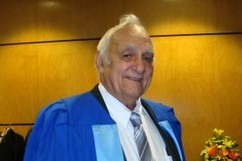Language and Culture Research Centre People & Projects Dr Ernie Grant
Dr Ernie Grant
- Future Students
- JCU Global Experience
- International Students
- Open Day
- How to apply
- Pathways to university
- Virtual Open Day
- Living on Campus
- Courses
- Publications
- Scholarships
- Parents and Partners
- JCU Heroes Programs
- Aboriginal and Torres Strait Islander in Marine Science
- Elite Athletes
- Defence
- Current Students
- New students
- JCU Orientation
- LearnJCU
- Placements
- CEE
- Unicare Centre and Unicampus Kids
- Graduation
- Off-Campus Students
- JCU Job Ready
- Safety and Wellbeing
- JCU Prizes
- Professional Experience Placement
- Employability Edge
- Art of Academic Writing
- Art of Academic Editing
- Careers and Employability
- Student Equity and Wellbeing
- Career Ready Plan
- Careers at JCU
- Partners and Community
- JCU-CSIRO Partnership
- Alumni
- About JCU
- Reputation and Experience
- Chancellery
- Governance
- Celebrating 50 Years
- Academy
- Indigenous Engagement
- Education Division
- Graduate Research School
- Research and Teaching
- Research Division
- Research and Innovation Services
- CASE
- College of Business, Law and Governance
- College of Healthcare Sciences
- College of Medicine and Dentistry
- College of Science and Engineering
- CPHMVS
- Anthropological Laboratory for Tropical Audiovisual Research (ALTAR)
- Anton Breinl Research Centre
- Agriculture Technology and Adoption Centre (AgTAC)
- Advanced Analytical Centre
- AMHHEC
- Aquaculture Solutions
- AusAsian Mental Health Research Group
- ARCSTA
- Area 61
- Lions Marine Research Trust
- Australian Tropical Herbarium
- Australian Quantum & Classical Transport Physics Group
- Boating and Diving
- Clinical Psychedelic Research Lab
- Centre for Tropical Biosecurity
- Centre for Tropical Bioinformatics and Molecular Biology
- CITBA
- CMT
- Centre for Disaster Solutions
- CSTFA
- Cyclone Testing Station
- The Centre for Disaster Studies
- Daintree Rainforest Observatory
- Fletcherview
- JCU Eduquarium
- JCU Turtle Health Research
- Language and Culture Research Centre
- MARF
- Orpheus
- TESS
- JCU Ideas Lab
- TARL
- eResearch
- Indigenous Education and Research Centre
- Estate
- Work Health and Safety
- Staff
- Discover Nature at JCU
- Cyber Security Hub
- Association of Australian University Secretaries
- Services and Resources Division
- Environmental Research Complex [ERC]
- Foundation for Australian Literary Studies
- Gender Equity Action and Research
- Give to JCU
- Indigenous Legal Needs Project
- Inherent Requirements
- IsoTropics Geochemistry Lab
- IT Services
- JCU Webinars
- JCU Events
- JCU Motorsports
- JCU Sport
- Library
- Mabo Decision: 30 years on
- Marine Geophysics Laboratory
- Office of the Vice Chancellor and President
- Outstanding Alumni
- Pharmacy Full Scope
- Planning for your future
- Policy
- PAHL
- Queensland Research Centre for Peripheral Vascular Disease
- Rapid Assessment Unit
- RDIM
- Researcher Development Portal
- Roderick Centre for Australian Literature and Creative Writing
- Contextual Science for Tropical Coastal Ecosystems
- State of the Tropics
- Strategic Procurement
- Student profiles
- SWIRLnet
- TREAD
- TropEco for Staff and Students
- TQ Maths Hub
- TUDLab
- VAVS Home
- WHOCC for Vector-borne & NTDs
- Media
- Copyright and Terms of Use
- Australian Institute of Tropical Health & Medicine
- Pay review

Ernie was born on the 1st February 1935 to John & Chloe Grant of Murray Upper.
Ernie is an elder of the Jirrbal tribe from the Tully area in Far North Queensland. He was raised in the traditional culture of his people and credits his mother Chloe, for instilling in him a great desire to learn all the facts about his Aboriginal heritage.
He has also had wide experience in western society including many years in research. He is now widely recognised in both cultures for his deep understanding of the unique characteristics of indigenous languages and culture.
These workshops will provide a basis for the holistic study of indigenous cultures.
Indigenous communities have a holistic view of their world, which incorporates the vital link between Land, Language and Culture. This view is significantly different from what is considered the norm in western society. Many academics, over the years, have recognised and noted its success in passing on information accurately for centuries. Solving the complex problems of to-day’s society requires consideration of all the information and all the strategies and perhaps it is time for schools and other institutions to step back from the traditional academic approach and consider the advantages of another traditional approach – the holistic one.
Indigenous culture reflects an oral as opposed to written tradition; it relies largely on observation; it is closely aligned to nature and the environment – with particular emphasis on cycles and patterns and the effect each has on the other; and of course it is based on an undeniable link between Land, Language and Culture.
This approach is designed to promote cross-cultural understanding by providing a framework for organising information in a meaningful way.
Although it is just one method of filing or retrieving information, it has the capacity to assist those who are genuinely interested in indigenous people and their culture.
Ernie’s holistic planning & teaching framework was officially launched by ISSU (Indigenous Schooling Support Unit) in 2006.
The Holistic Planning & Teaching Framework has proven very successful within the Queensland Education Department and has been highly recommended by professionals and academics alike.
We welcome the opportunity to assist with any of your cultural awareness programs which we can tailor to your needs.
Ernie’s quote
“If you do what you’ve always done, you’ll get what you’ve always got.”